- Home
- Daphne Du Maurier
The King's General Page 7
The King's General Read online
Page 7
It made all the difference to my daily life, and in the summer I could even venture to the garden, and propel myself a little distance, up and down before the house, winning some measure of independence. In '32, we had another wedding in the family. My sister Mary, whom we had long teased for her devoutness and sober, gentle ways, accepted the offer of Jonathan Rashleigh of Menabilly, who had lost his first wife in child-bed the year before, and was left with a growing family upon his hands. It was a most suitable match in all respects, Jonathan being then some forty years of age and Mary thirty-two. She was married from Lanrest, and to the wedding, with their father, came his three children, Alice, Elizabeth, and John. Later I was to come to know them well, but even now--as shy and diffident children--they won my affection. To the wedding also came Bevil Grenvile, a close friend to Jonathan as he was to all of us, and it was when the celebrating was over, and Mary departed to her new home the other side of Fowey, that I had a chance to speak with him alone. We spoke for a few moments about his own children, and his life at Stowe, and then I asked him, not without some tremulation, for all my calm assurance, how Richard did.
For a moment he did not answer, and, glancing at him, I saw his brow was troubled. "I had not wished to speak of it," he said at length, "but since you ask me... all has gone very ill with him, Honor, ever since his marriage." Some devil of satisfaction rose in my breast, which I could not crush, and "How so?" I asked. "Has he not a son?" For I had heard that a boy was born to them a year or so before, on 16 May to be exact--the same date, ironically enough, as that on which I had been crippled. A new life for the one that is wasted, I had thought at the time, when I was told of it, and, like a spoiled child that had learned no wisdom after all, I remember crying all night upon my pillow, thinking of the boy, who, but for mischance and the workings of destiny, might have been mine. That was a day, if I recollect aright, when Matty kept guard at my door, and I made picture after picture in my mind of Richard's wife propped upon pillows and a baby in her arms, and Richard smiling beside her. The fantasy was one which, for all my disciplined indifference, I found most damnable. But to return to Bevil. "Yes," he answered. "It is true he has a son, and a daughter too, but whether Richard sees them or not I cannot say. The truth is that he has quarreled with his wife and treated her in barbarous fashion--even laid violent hands upon her, so she says--and she is now petitioning for a divorce against him. Furthermore, he slandered the Earl of Suffolk, his wife's kinsman, who brought an action against him in the Star Chamber and won the case, and Richard, refusing to pay the fine--and in truth he could not, possessing not a penny--is likely to be cast into the Fleet Prison for debt at any moment." Oh, God, I thought, what a contrast to the life we would have made together. Or was I wrong, and was this symbolic of what might have been? "He was always violent, even as a lad," continued Bevil. "You knew so little of him, Honor; alas! three months of happy wooing is no time in which to judge a man."
I could not answer this, for reason was on his side. But I thought of the spring days, lost to me forever, and the apple blossom in the orchard. No maid could have had more tender or more intuitive a lover. "How was Richard violent?" I asked. "Irresponsible and wild, perhaps, but nothing worse. His wife must have provoked him."
"As to that, I know nothing," answered Bevil, "but I can well believe it. She is a woman of some malice, and of doubtful morals. She was a close friend to Gartred--perhaps you did not know that--and it was when she was visiting at Orley Court that the match was made between them. Richard--as no one knows better than yourself--could not have been his best self at that time." I said nothing, feeling, behind Bevil's gentle manner, some faint reproach, unconscious though it was. "The truth is," said Bevil, "that Richard married Mary Howard for her money, but once wed found he had no control over her purse or her property, the whole being in the power of trustees who act solely in her interest."
"Then he is no whit better off than he was before?" I asked.
"Rather worse, if anything," replied Bevil, "for the Star Chamber will not release him from his debt for slander, and I have too many claims upon me at this time to help him either."
It was a sorry picture that he painted, and, though to my jealous fancy it was preferable to the idyllic scene of family bliss that I had in imagination conjured, it was no consolation to learn of his distress. That Richard should ill use his wife because he could not trifle with her property was an ugly fact to face, but, having some inkling of his worse self, I guessed this to be true. He had married her without love, and in much bitterness of heart, and she, suspecting his motive, had taken care to disappoint him. What a rock of mutual trust on which to build a lasting union! I held to my resolve, though, and sent him no word of sympathy or understanding. Nor was it my own pride and self-pity that kept me from it, but a firm belief that such a course was wisest. He must lead his own life, in which I had no further part.
He remained, we heard later, for many months in prison, and then in the autumn of the following year he left England for the Continent, where he saw service with the King of Sweden.
How much I thought of him, and yearned for him, during those intervening years does not matter to this story. I was weakest during the long watches of the night, when my body pained me. During the day I drilled my feelings to obedience, and what with my progress in my studies--I was by way of becoming a fair Greek scholar--and my interest in the lives of my brothers and sisters, the days and the seasons passed with some fair measure of content.
Time heals all wounds, say the complacent, but I think it is not so much time that does it as determination of the spirit. And the spirit can often turn to devil in the darkness.
Five, ten, fifteen years; a large slice out of a woman's life, and a man's too, for that matter. We change from the awakening, questing creatures we were once, afire with wonder and expectancy and doubt, to persons of opinion and authority, our habits formed, our characters molded in a pattern.
I was a maid, and a rebellious, disorderly one at that, when I was first crippled; but in the year of '42, when the war that was to alter all our lives broke forth, I was a woman of some two and thirty years, the "good Aunt Honor" to my numerous nephews and nieces, and a figure of some importance to the family at large.
A person who is forever chairbound or bedridden can become a tyrant if she so desires, and, though I never sought to play the despot, I came to be, after my mother died, the one who made decisions, whose authority was asked for on all occasions, and in some strange fashion it seemed that a legendary quality was wove about my personality, as though my physical helplessness must give me greater wisdom.
I accepted the homage with my tongue in my cheek, but was careful not to destroy the fond illusion. The young people liked me, I think, because they knew me to be a rebel still, and when there was strife within the family I was sure to take their part. Cynical on the surface, I was an incurable romantic underneath, and if there were messages to be given, or meetings to arrange, or secrets to be whispered, my chamber at Lanrest would become trysting place, rendezvous, and confessional in turn. Mary's stepchildren, the Rashleighs, were my constant visitors, and I found myself involved in many a youthful squabble, defending their escapades with a ready tongue, and soon acting as go-between to their love affairs. Jonathan, my brother-in-law, was a good just man, but stern; a firm believer in the settled marriage as against the impulsive prompting of the heart. No doubt he was right, but there was something distasteful to my mind in the bargaining between parents and the counting of every farthing, so that when Alice, his eldest daughter, turned thin and pale for languishing after that young rake, Peter Courtney--the parents disputing for months whether they should wed or no--I had them both to Lanrest and bade them be happy while the chance was theirs, and no one was a whit the wiser.
They married in due course, and although it ended in a separation (for this I blame the war), at least they had some early happiness together, for which I hold myself responsible.
My go
dchild Joan was another of my victims. She was, it may be remembered, the child of my sister Cecilia, and some ten years my junior. When John Rashleigh, Mary's stepson, came down from Oxford to visit us, he found Joan at my bedside, and I soon guessed which way the wind was blowing. I had half a thought of sending them to the apple tree, but some inner sentimentality forbade me, and I suggested the bluebell wood instead. They were betrothed within a week, and married before the bluebells had faded, and not even Jonathan Rashleigh could find fault with the marriage settlement.
But the war years were upon us before we were aware, and Jonathan, like all the county gentlemen, my brothers included, had more anxious problems before them. Trouble had been brewing for a long while now, and we in Cornwall were much divided in opinion, some holding that His Majesty was justified in passing what laws he pleased (though one and all grumbled at the taxes) and others holding to it that Parliament was right in opposing any measure that smacked of despotism. How often I heard my brothers argue the point with Jack Trelawney, Ranald Mohun, Dick Buller, and other of our neighbors--my brothers holding firmly for the King, and Jo already in a position of authority, for his business was to superintend the defenses of the coast--and as the months passed tempers became shorter and friendships grew colder, an unpleasing spirit of distrust walking abroad. Civil war was talked of openly, and each gentleman in the county began to look to his weapons, his servants, and his horses, so that he could make some contribution to the cause he favored when the moment came. The women too were not idle, many--like Cecilia at Mothercombe--tearing strips of bed linen into bandages, and packing their storerooms with preserves for fear of siege. Arguments were fiercer then, I do believe, than later when the fighting was among us. Friends who had supped with me the week before became of a sudden suspect, and long-forgotten scandals were brought forth to blacken their names, merely because of the present opposition of their views.
The whole business made me sick at heart, and this whipping-up of tempers between neighbors who for generations had lived at peace seemed a policy of the devil. I hated to hear Robin, my dearly loved brother, with his tenderness for dogs and horses, slander Dick Buller for upholding Parliament, vowing he took bribes and made spies of his own servants, when Dick and he had gone hawking together not six months before. While Rob Bennett, another of our neighbors and a friend of Buller's, began to spread damning rumors in return about my brother-in-law Jonathan Rashleigh, saying that Jonathan's father and elder brother, who had died very suddenly within a week of one another many years before, during the smallpox scourge, had not succumbed to the disease at all, but had been poisoned. These tales showed how in a few months we had changed from neighbors into wolves at one another's throats.
At the first open rupture between His Majesty and Parliament in '42, my brothers Jo and Robin, and most of our closest friends, including Jonathan Rashleigh, his son-in-law, Peter Courtney, the Trelawneys, the Arundells, and, of course, Bevil Grenvile, declared for the King. There was an end at once to family life and any settled way of living. Robin went off to York to join His Majesty's army, taking Peter Courtney with him, and almost immediately they were both given command of a company. Peter, showing much dash and courage in his first action, was knighted on the field.
My brother Jo and my brother-in-law Jonathan went about the county raising money, troops, and ammunition for the royal cause. The first was no easy matter, for Cornwall was a poor county at the best of times and lately the taxes had well-nigh broken us; but many families, with little ready money to spare, gave their plate to be melted down to silver, a loyal if wasteful gesture. I had qualms about this before following their example, but in the end was obliged to do so as Jonathan Rashleigh was Collector for the district. My attitude to the war was somewhat cynical, for, holding no belief in great causes, and living alone now at Lanrest with only Matty and the servants to tend me, I felt myself curiously detached. The successes of the first year did not go to my head, as they did to the rest of my family, for I could not believe, as they were inclined to, that Parliament would give way so easily. For the Parliamentarians had many powerful men at their command, and much money--all the rich merchants of London were strongly in their favor--besides which I had an uneasy suspicion, which I kept to myself, that their army was incomparably the better of the two. God knows our leaders wanted nothing in courage, but they lacked experience. Equipment, too, was poor, and discipline nonexistent in the ranks. By the autumn the war was getting rather too close for comfort, and the two armies were ranged east and west along the Tamar. I had an uneasy Christmas, and in the third week of January I learned that the worst had happened, and the enemy had crossed the Tamar into Cornwall. I was at breakfast when the news was brought us, and by none other than Peter Courtney, who had ridden hotfoot from Bodmin to warn me that the opposing army was even now on the road to Liskeard. He, with his regiment, which was under the command of Sir Ralph Hopton, was drawn up to oppose them, and Hopton was at the moment holding a council of war at Boconnoc, only a few miles distant. "With any luck," he told us, "the fighting will not touch you, here at Lanrest, but will be between Liskeard and Lostwithiel. If we can break them now and drive them out of Cornwall the war will be as good as won."
He looked handsome, flushed, and excited, his dark curls falling about his face. "I have no time to go to Menabilly," he told me. "Should I fall in battle, will you tell Alice that I love her well?"
He was gone like a flash, and I and Matty, with the two elderly menservants and three lads--all that were left to us--were alone, unarmed and unprepared. There was nothing to do but to get the cattle and the sheep in from pasture and secure them in the farmstead, and bolt and bar ourselves within the house. Then we waited, all gathered round the fireside in my chamber upstairs. Once or twice, opening the casement, we thought we heard the sound of cannon shot, dull and intermittent, strangely distant in the cold clear air of January. Somewhere about three in the afternoon one of the farm lads came running to the house and hammered loud upon the entrance door. "The enemy are routed," he called excitedly, "the whole pack of them scattering like whipped dogs along the road to Liskeard. There's been a great battle fought today on Braddock Down." More stragglers appeared who had taken refuge in the hedges, and one and all told the same story, that the King's men had won a victory, fighting like furies, and taking nearly a thousand prisoners.
Knowing that rumor was a lying jade, I bade the household bide awhile, and keep the doors fast until the story should be proved, but before nightfall we knew the victory was certain, for Robin himself came riding home to cheer us, covered in dust, with a bloodstained bandage on his arm, and with him the Trelawney brothers and Ranald Mohun. They were all of them laughing and triumphant, for the two Parliament divisions had fled in dire disorder straight for Saltash, and would never, said Jack Trelawney, show their faces more this side the Tamar. "And this fellow," he said, clapping Robin on the shoulder, "rode into battle with a hawk on his wrist, which he let fly at Ruthin's musketeers, and, by God, the bird so startled them that the lot of them shot wide, and started taking to their legs before they'd spent their powder."
"It was a wager I had with Peter," smiled Robin, "and if I lost, the forfeit was my spurs, and that I should be godfather to his next baby."
They rocked with laughter, caring not a whit for the spilled blood and the torn bodies they had trampled, and they sat down, all of them, and drank great jugs of ale, wiping the sweat from their foreheads and discussing every move of the battle they had won like gamesters after a cockfight.
Bevil Grenvile had been the hero of the day in this, his first engagement, and they described to us how he had led the Cornish foot down one hill and up another in so fierce a charge that the enemy could not withstand them.
"You should have seen him, Honor," said Robin, "with his servants and his tenants drawn up in solemn prayer before him, his sword in his hand, his dear honest face lifted to the sky. They were all clad in the blue and silver livery, as if it wer
e high holiday. And down the hill they followed him, shouting 'A Grenvile! A Grenvile!' with his servant Tony Paine waving his crimson standard with the three gold rests upon it. My God, I tell you, it made me proud to be a Cornishman."
"It's in his blood," said Jack Trelawney. "Here's Bevil been a country squire for all his life, and you put a weapon in his hand and he turns tiger. The Grenviles are all alike at heart."
"I wish to heaven," said Ranald Mohun, "that Richard Grenvile would return from slaughtering the savages in Ireland and come and join his brother." There was a moment's awkward silence, while some of them remembered the past and recollected my presence in the room, and then Robin rose to his feet and said they must be riding back to Liskeard. Thus, in southeast Cornwall, war touched us for a brief space in '43 and so departed, and many of us who had not even smelled the battle talked very big of what we had heard and seen, while those who had taken part in it, like Robin, boasted that the summer would see the rebels in Parliament laying down their arms forever.

 Jamaica Inn
Jamaica Inn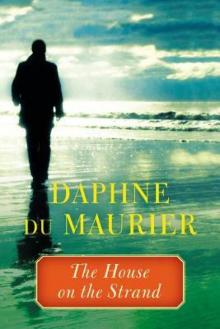 The House on the Strand
The House on the Strand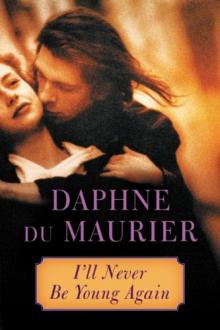 I'll Never Be Young Again
I'll Never Be Young Again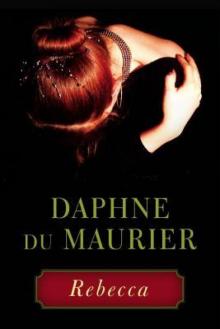 Rebecca
Rebecca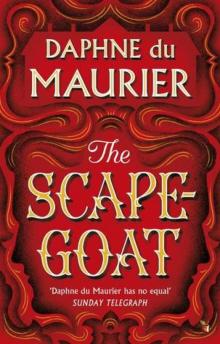 The Scapegoat
The Scapegoat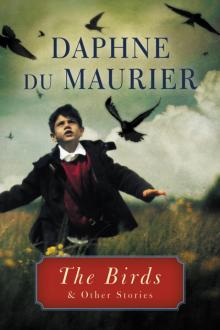 The Birds and Other Stories
The Birds and Other Stories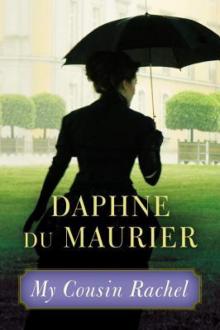 My Cousin Rachel
My Cousin Rachel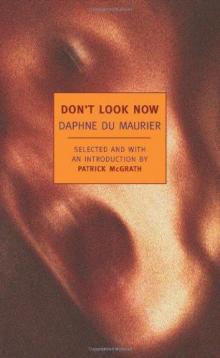 Don't Look Now
Don't Look Now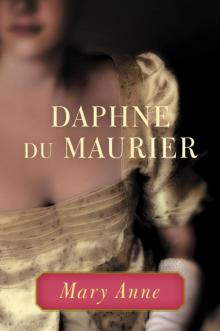 Mary Anne
Mary Anne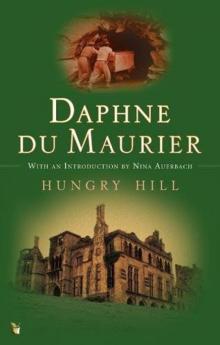 Hungry Hill
Hungry Hill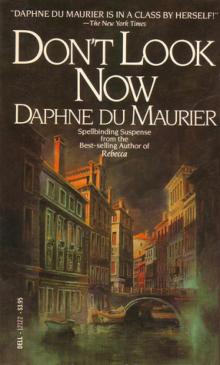 Don't Look Now and Other Stories
Don't Look Now and Other Stories The Loving Spirit
The Loving Spirit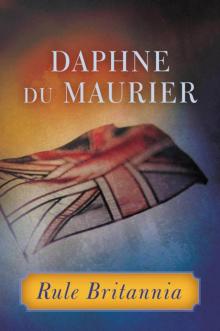 Rule Britannia
Rule Britannia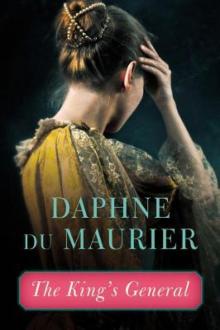 The King's General
The King's General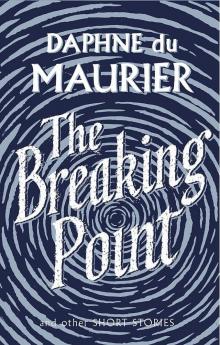 The Breaking Point: Short Stories
The Breaking Point: Short Stories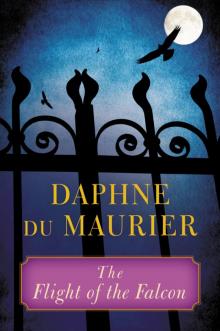 The Flight of the Falcon
The Flight of the Falcon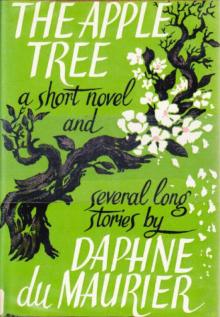 The Apple Tree: a short novel & several long stories
The Apple Tree: a short novel & several long stories The Breaking Point
The Breaking Point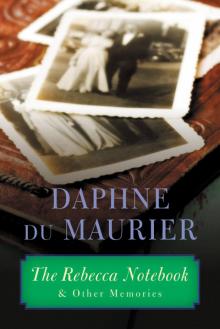 The Rebecca Notebook
The Rebecca Notebook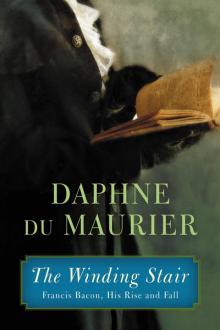 The Winding Stair: Francis Bacon, His Rise and Fall
The Winding Stair: Francis Bacon, His Rise and Fall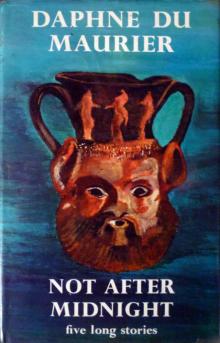 Not After Midnight & Other Stories
Not After Midnight & Other Stories The Doll
The Doll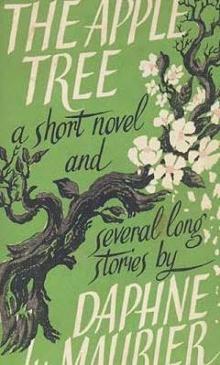 The Apple Tree
The Apple Tree